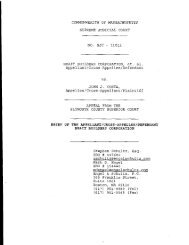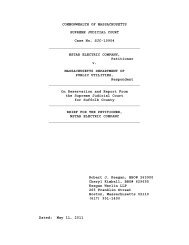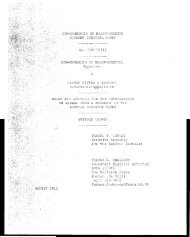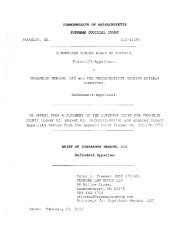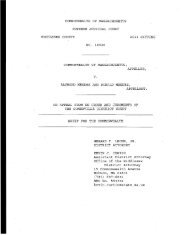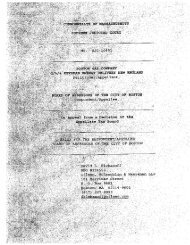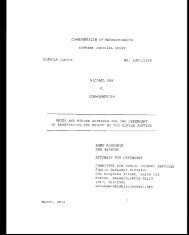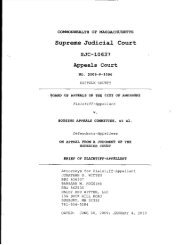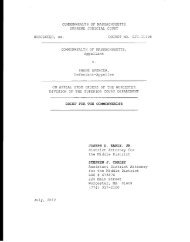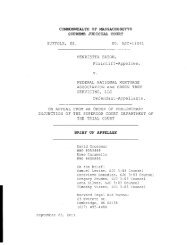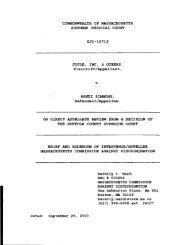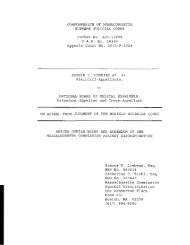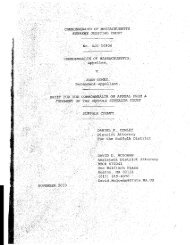Appellant McCowen Brief - Mass Cases
Appellant McCowen Brief - Mass Cases
Appellant McCowen Brief - Mass Cases
You also want an ePaper? Increase the reach of your titles
YUMPU automatically turns print PDFs into web optimized ePapers that Google loves.
a<br />
a<br />
0<br />
a<br />
0<br />
1)<br />
0<br />
0<br />
poverty, inebriation, and a high-profile murder unsolved<br />
for forty months. Potential for manipulation ran high.<br />
Police have known a suppression rule was possible,<br />
if not inevitable, since Diaz. Even under current law,<br />
this interrogation doesn't pass muster. The trial court<br />
found <strong>McCowen</strong>' s statements voluntary because he didn't<br />
confess, a faulty analysis. Early jurisprudence on the<br />
Humane Practices Rule focused on the confession/admission<br />
distinction, excluding involuntary confessions, but not<br />
involuntary non-confessional statements. Commonwealth v.<br />
Marshall, 338 <strong>Mass</strong>. 460, 464 (1959); Commonwealth vI<br />
Haywood, 247 <strong>Mass</strong>. 16, 18 (1923). The U.S. Supreme Court<br />
eradicated that distinction; admission of any involuntary<br />
statement offends due process. Mincey, 437 U.S. at 398.<br />
This Court also focuses on statements, not confessions,<br />
when analyzing voluntariness. See Commonwealth v.<br />
Anderson, 445 Mase. 195, 205-06 (2005).<br />
under Mincey, <strong>McCowen</strong>'s refusal to confess is<br />
irrelevant. He tried to contact his attorney, was<br />
marginally retarded, handicapped by narcotics and<br />
alcohol, and interrogated for six-plus hours with no<br />
recording. His statements were not voluntary beyond a<br />
reasonable doubt. The trial court erred, failing to<br />
factor the absence of a recording into its analysis.<br />
-38-



